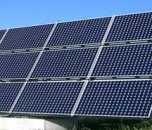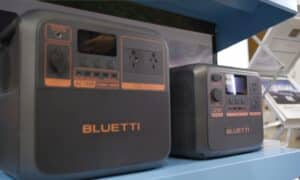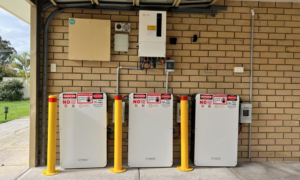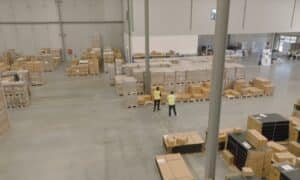The Silicon Valley Toxics Coalition (SVTC) has released a report expressing concerns regarding the environmental and health hazards of solar panel manufacturing. A number of media outlets and commentators have been somewhat exaggerating the contents of the report, bringing the “green” nature of solar energy equipment under the spotlight in very unfavourable terms.
The SVTC’s report acknowledges that solar energy will play an essential role in meeting energy changes, but as the solar PV sector grows, the group believes little attention is being paid to the potential environmental and health risks often associated with rapid growth. Among their concerns is that the most widely used solar panels are based on materials and methods from the electronics industry that have the potential to create massive volumes of e-waste at the end of their useful lives, which they estimate to be 20 to 25 years.
Most solar panel manufacturers off a warranty period of panels of 20-25 years, but the useful life is actually estimated at 35 years for monocrystalline and polycrystalline panels.
The SVTC also says in the report: “..we have a limited window of opportunity to ensure that this extremely important industry is truly “clean and green,” from its supply chains through product manufacturing, use, and end-of-life disposal. The solar industry has taken a leadership role in addressing the world’s pressing energy and environmental challenges and will serve as a model for how other innovative “green” industries address the lifecycle impacts of their products.”
The report is by no means a damning indictment of solar energy, but simply an important alert and wake-up call to the solar energy industry to improve production efficiency, move towards more environmentally friendly processes and circuit board componentry wherever possible, implement responsible waste disposal and launch recycling programs well in advance, rather than face similar issues that the computer and general electronics industry is negotiating today.
The industry is already taking note of the current and potential future environmental future challenges and even though solar panels have a very long life compared to other electronic equipment, some manufacturers have already begun putting take-back programs into place. It’s also in the industry’s best interests to improve materials and energy efficiency in production processes as the less resources required, the better the returns for the company.
A solar panel as an end product is highly recyclable. Most of the weight of a panel is made up of tempered glass and aluminium; both being very sought after materials. Even the silicon can be easily recycled. Compared to electronic equipment such as a television set, circuit board components and wiring are minimal.
The energy payback in solar panel manufacturing is also very short; that is the amount of energy produced by the panel compared to the amount of energy used in its creation – this is also known as embodied energy. While it varies according to where the solar panel is installed; the energy payback period can be as little as 18 months (including the aluminium frame) and some solar panel installations commissioned in the 1970’s are still churning out power today.
The environmental benefits of solar energy far outweigh any negatives and will only increase as what is really still a fledgling industry matures. Compared to energy technologies such as coal fired power generation, even “new generation coal“, today’s solar industry is still incredibly green and will only get better as it evolves.
The full Silicon Valley Toxics Coalition report, “Toward a Just and Sustainable Solar Energy Industry” can be downloaded here. (PDF)












































